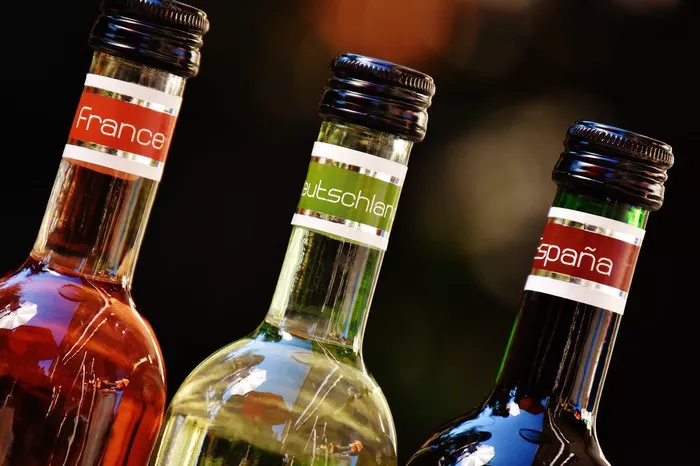Heineken, a globally recognized brand, holds a prominent place in the realm of beers. For many, it’s a go-to choice for its refreshing taste and cultural significance. But amidst its popularity, an often-raised query revolves around the calorie content. Understanding the nutritional profile of alcoholic beverages is crucial for those watching their calorie intake. Hence, delving into the specifics of how many calories a Heineken beer contains becomes essential for informed consumption and health-conscious decisions.
When examining the calorie content of Heineken beer, considering the context of its ingredients and brewing process is pivotal. This renowned lager is crafted with four primary ingredients: water, malted barley, hops, and yeast. The brewing process involves several stages, including mashing, boiling, fermenting, and conditioning, all of which contribute to the final calorie count of the beverage. While Heineken’s recipe remains relatively consistent, variations in regional formulations and brewing methods might lead to slight differences in calorie content.
See Also: How Much is Too Much Beer a Day?
Caloric Content of Heineken Beer
An essential aspect of understanding the calorie content of Heineken beer is recognizing the serving size. Typically, a standard serving size for beer is 12 ounces (355 milliliters). However, various packaging options, including bottles, cans, and draft servings, may differ in volume. As such, the calorie content can vary based on the serving size, necessitating attention to packaging information or brewery data to gauge accurate caloric intake.
According to available nutritional information, a 12-ounce (355 milliliters) serving of Heineken beer contains approximately 142 calories. This calorie count may serve as a baseline reference for individuals monitoring their dietary intake. However, it’s crucial to note that this value can fluctuate based on factors such as the beer’s alcohol by volume (ABV), residual sugars, and brewing techniques.
The alcohol content of Heineken beer plays a significant role in determining its caloric density. With an ABV of around 5%, this lager falls within the average alcohol range for beers. It’s important to remember that alcohol itself contributes to the calorie count of the beverage. Alcohol contains roughly 7 calories per gram, making it a significant factor in the overall caloric content of any alcoholic drink, including Heineken.
Moreover, residual sugars present in the beer contribute to its caloric load. While Heineken is known for its balanced taste with a moderate sweetness, the exact amount of residual sugars can vary. These sugars result from the fermentation process and can influence the beer’s overall caloric content. However, the precise measurement of residual sugars in specific beers may not always be readily available in nutritional data.
Factors Influencing Caloric Variations
Understanding the variability in caloric content within different beer types and brands is crucial. For instance, Heineken offers various beer variants, including light or low-calorie options, which cater to individuals seeking reduced-calorie alternatives. These variants undergo specific brewing methods or ingredient adjustments to lower the overall calorie count while maintaining a comparable flavor profile.
The brewing process itself can significantly impact the calorie content of beer. Factors such as fermentation duration, types of malt used, and the brewing temperature can influence the final caloric density of the beverage. Additionally, certain brewing techniques might focus on reducing residual sugars or modifying alcohol content, consequently affecting the beer’s overall calorie count.
Packaging differences also contribute to variations in calorie content. Heineken is available in bottles, cans, and draft servings, each potentially containing distinct calorie counts per serving. Factors like carbonation levels, preservatives, or even serving temperature can subtly impact the perception of taste and thus influence consumption patterns, subsequently affecting calorie intake.
Making Informed Choices
For individuals mindful of their caloric intake, being aware of Heineken’s calorie content allows for more informed choices when enjoying this popular lager. Moderation is key, as excessive consumption of any alcoholic beverage can lead to health risks beyond calorie concerns. Nonetheless, if including Heineken beer as part of a balanced diet or social occasions, understanding its caloric impact aids in managing overall dietary goals.
Pairing Heineken with low-calorie or nutrient-dense foods can also be an effective strategy for those concerned about calorie intake. Opting for lighter food options such as salads, lean proteins, or vegetables can complement the beer while balancing the overall calorie count of the meal or snack.
Moreover, engaging in physical activities or exercise regimes can help offset the calories derived from consuming Heineken beer. Incorporating regular workouts or fitness routines can contribute to maintaining a healthy lifestyle, allowing for occasional indulgence without compromising overall health goals.
Conclusion
In conclusion, the caloric content of Heineken beer plays a pivotal role in understanding its impact on dietary intake. With approximately 142 calories in a 12-ounce (355 milliliters) serving, Heineken stands as a moderately caloric beverage within the realm of beers. However, variations in brewing techniques, residual sugars, alcohol content, and serving sizes can influence the precise caloric count.
Awareness of these factors empowers individuals to make informed choices regarding their consumption of Heineken and aligns with their dietary preferences or health objectives. Whether opting for the classic Heineken lager or exploring lighter variants, understanding the caloric implications enables consumers to enjoy this iconic beer responsibly and in moderation, contributing to a balanced and mindful approach to their overall well-being.


